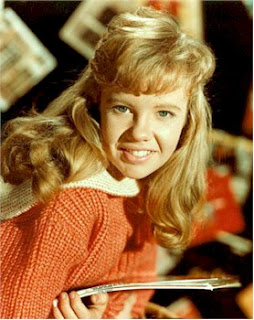Wise: Hey, Werth. How come you have a five-day beard and your hair looks like a before picture from a Wen Hair Care infomercial?
Werth: Because unfortunately due to the wrath of Hurricane Sandy, I still don't have electricty.
Wise: That stinks, Werth.
Werth: But still, there are those who lost much more than I have in the storm.
Wise: True, true. Our thoughts go out to all those who lost power, property and loved ones.
Werth: Of course every chance I get to go to a friend's house and charge up my laptop, I pop in a DVD and try a little Hollywood classic film escapism. And when I think of movies where hurricanes play an integral part, a rare gem immediately comes to mind. Samuel Goldwyn's production of the Gershwin classic Porgy and Bess (1959) was complicated from its very start. Many of the African American stars approached to appear in the film were initially hesitant because the characters of Catfish Row were viewed as stereotypes from a former time.
Sidney Poitier in particular downright refused to do the film because he felt that Porgy singing songs like "I Got Plenty o' Nuttin'" was the wrong image to portray during the Civil Rights Movement. But Hollywood legend has it that Goldwyn played hardball and Poitier decided to do the film lest Goldwyn decide not to use him in the much more progressive film The Defiant Ones (1958).
Wise: In Hollywood, you're only as good as your last compromise.
Werth: Ultimately the production came together under the direction of Otto Preminger and the beloved/notorious musical was put to film with Poitier, Dorothy Dandridge, Pearl Bailey and Sammy Davis, Jr. hunkering down as a hurricane blows into town. Normally, I'd give a lovingly detailed description of the film based on on a recent viewing—however, if the racial thorniness of Porgy and Bess was bad in 1959, it has become even more conflicted in the ensuing years—and unfortunately, Porgy and Bess has never been transferred to DVD.
Wise: Geena Davis makes it to DVD, but Gershwin doesn't?
And Oscar-nominated Leon Shamroy's color cinematography is vibrant and beautiful. When I saw the film at a special event at the Ziegfeld Theater several years ago, the future looked bleak for Porgy and Bess.
The last remaining prints are decaying and no one seems to want to devote the money to saving them. I think that's a shame. The conversation that Porgy and Bess generates is a unique perspective on racial issues of that time, and the film should not be erased because it is difficult. In fact, that is the very reason it should be saved.
Wise: While the gale-force winds have driven you back to re-examining neglected classics, I spent my storm watch deeply invested in dudes in frocks (Team Jujubee!) as well as another category five disaster: Twister (1989).
Werth: Twister wasn't a total disaster area. There were some lovely close-ups on Cary Elwes and his lips.
Wise: Actually, this is the other Twister based on the novel Oh! by Mary Robison. Kansas soda pop and mini golf millionaire Eugene Cleveland (Harry Dean Stanton) has been neglecting his kids while chasing his fortune as well as the sexy, but snappish host of a local Christian children's TV program. His daughter Maureen (Suzy Amis) spends most of her time sipping beer from a can and ignoring her own daughter Violet, while his son Howdy (Crispin Clover) swans about the house in velvet jackets and a sleek bob, looking like the source material for Johnny Depp's Willy Wonka.
Werth: Crispin Glover invented fey creepiness.
Wise: Into this maelstrom of family dysfunction bursts Maureen's ex Chris (Dylan McDermott) who wants to marry Maureen and save both her and Violet from the insanity of their family. Just as his efforts begin to look hopeless, a tornado touches down and the family flees into the basement where they are forced to confront their frustrations and each other.
Werth: Kansas basements are great for frustrating confrontations.
Wise: The film is something like an awkward family reunion with mismatched performances and oddball connections, lots of shouting, narrative doglegs, and even though things end up happily enough, no one is sure if attending was a good idea. McDermott gives soulful intensity and energizes his scenes, but it's Glover who gives the most memorable—and bizarre—performance of the film. (His guitar solo is not to be missed.)
Werth: Speaking of things not to be missed, everyone should tune in next week for a less stormy Film Gab.
Wise: And hopefully Werth will look less like Tom Hanks in Castaway.





















